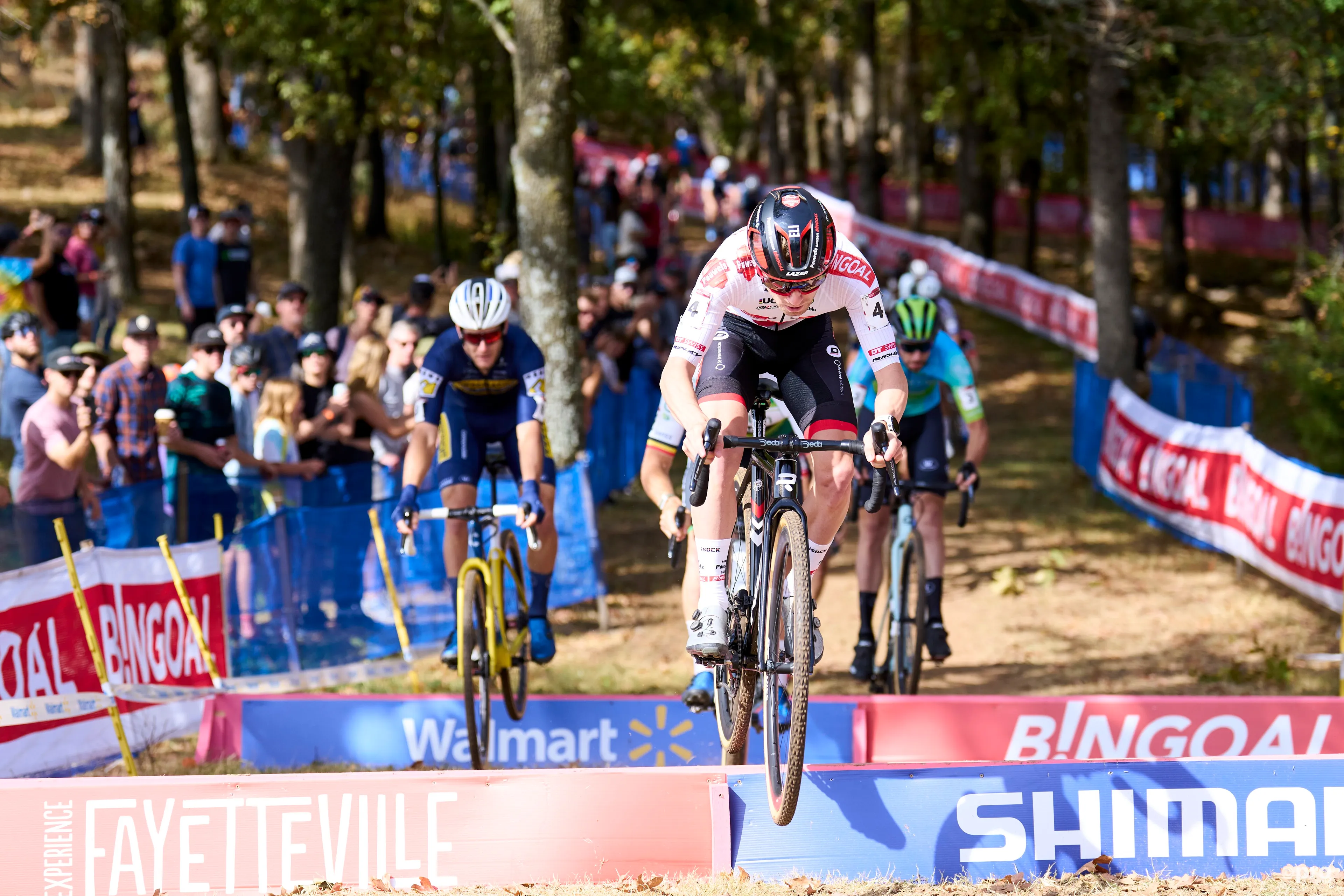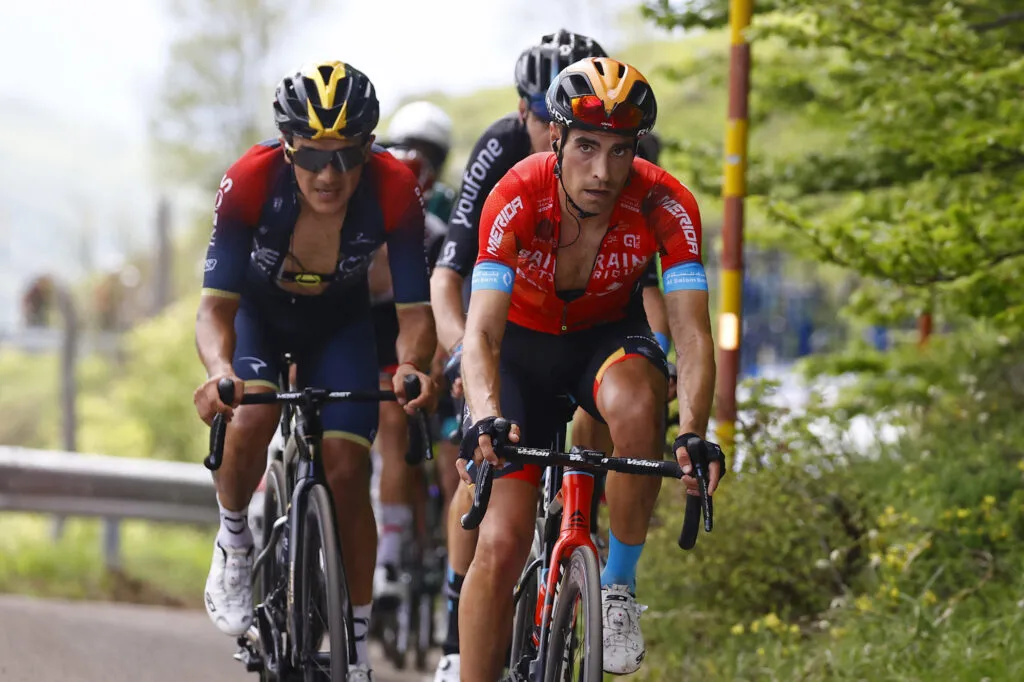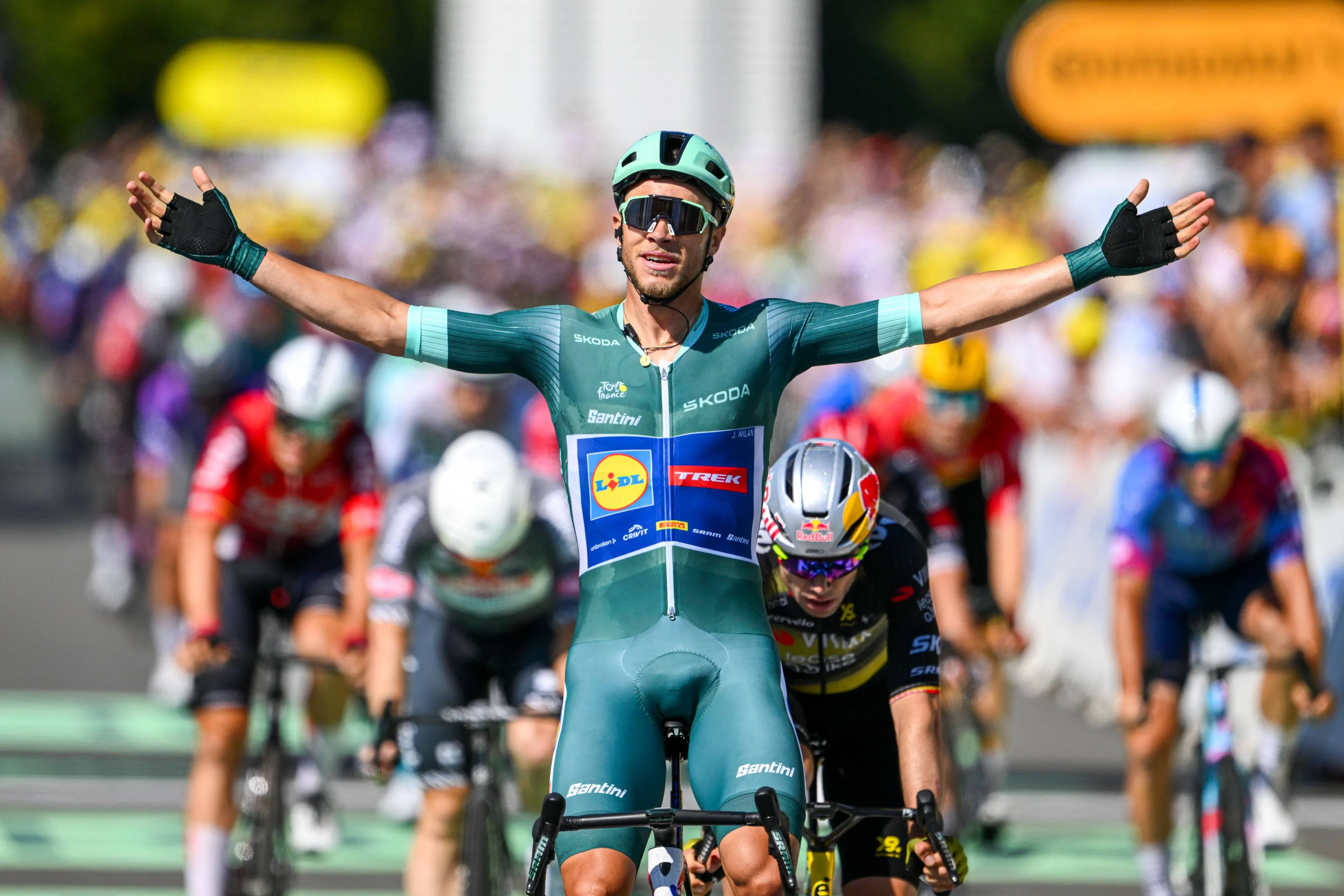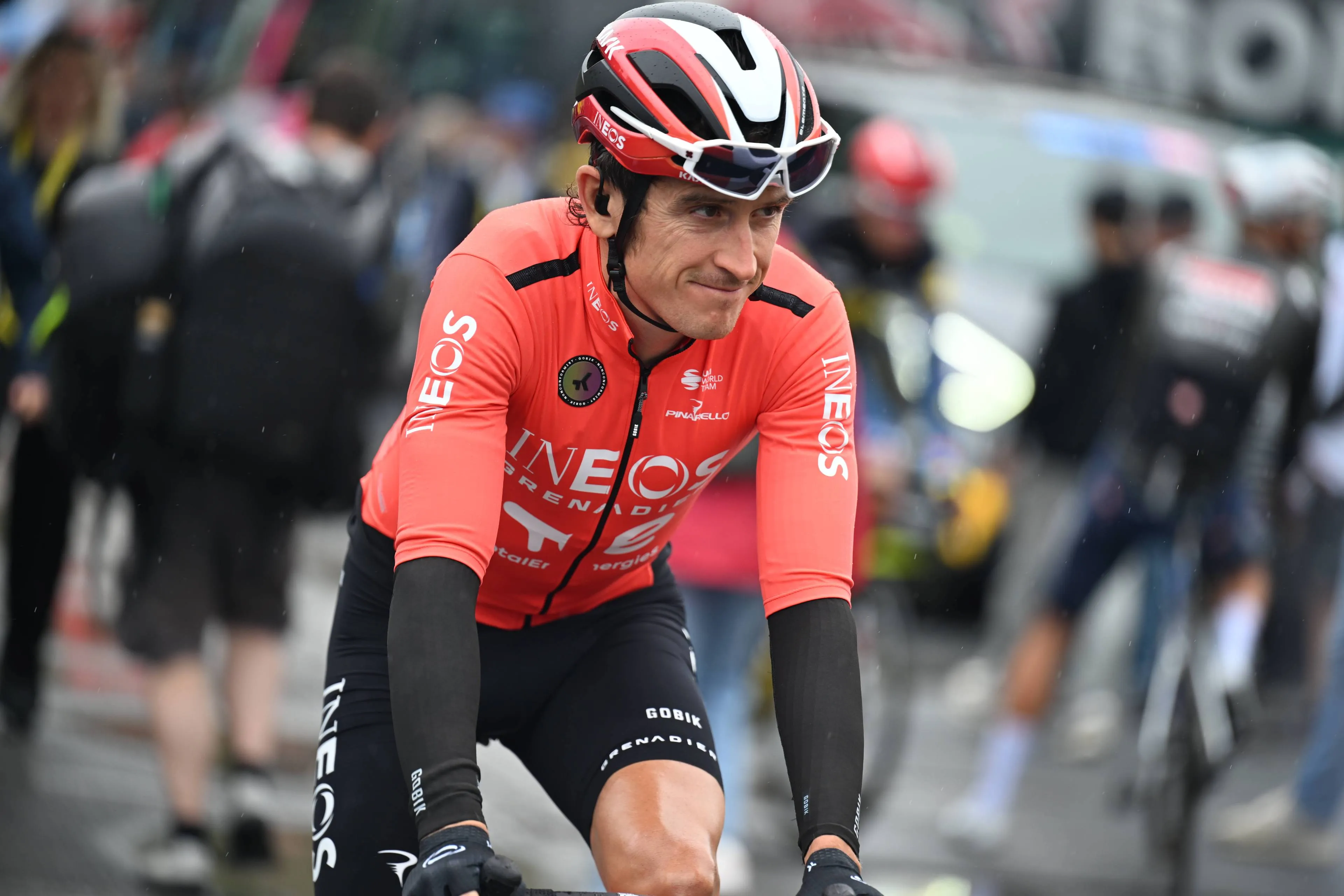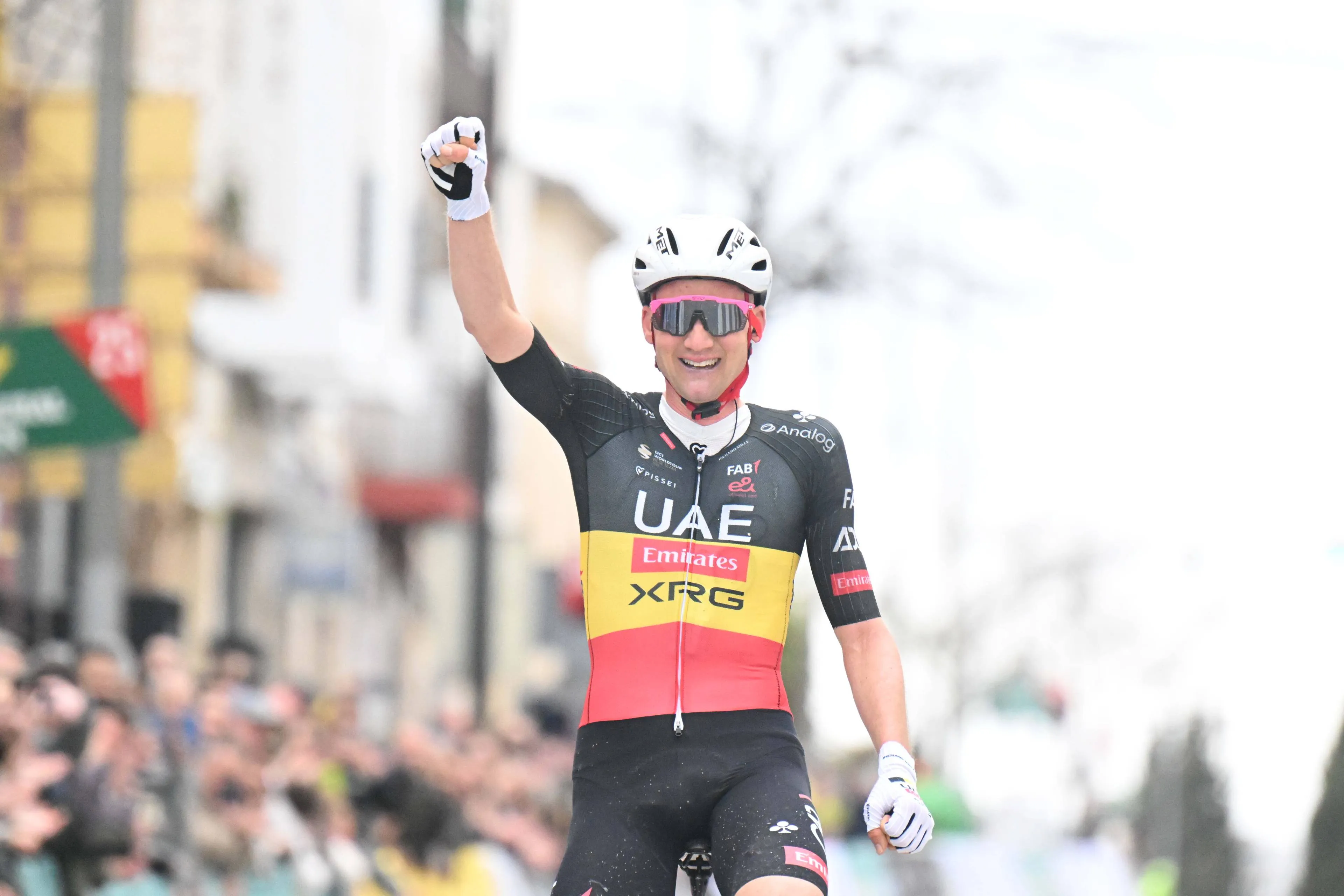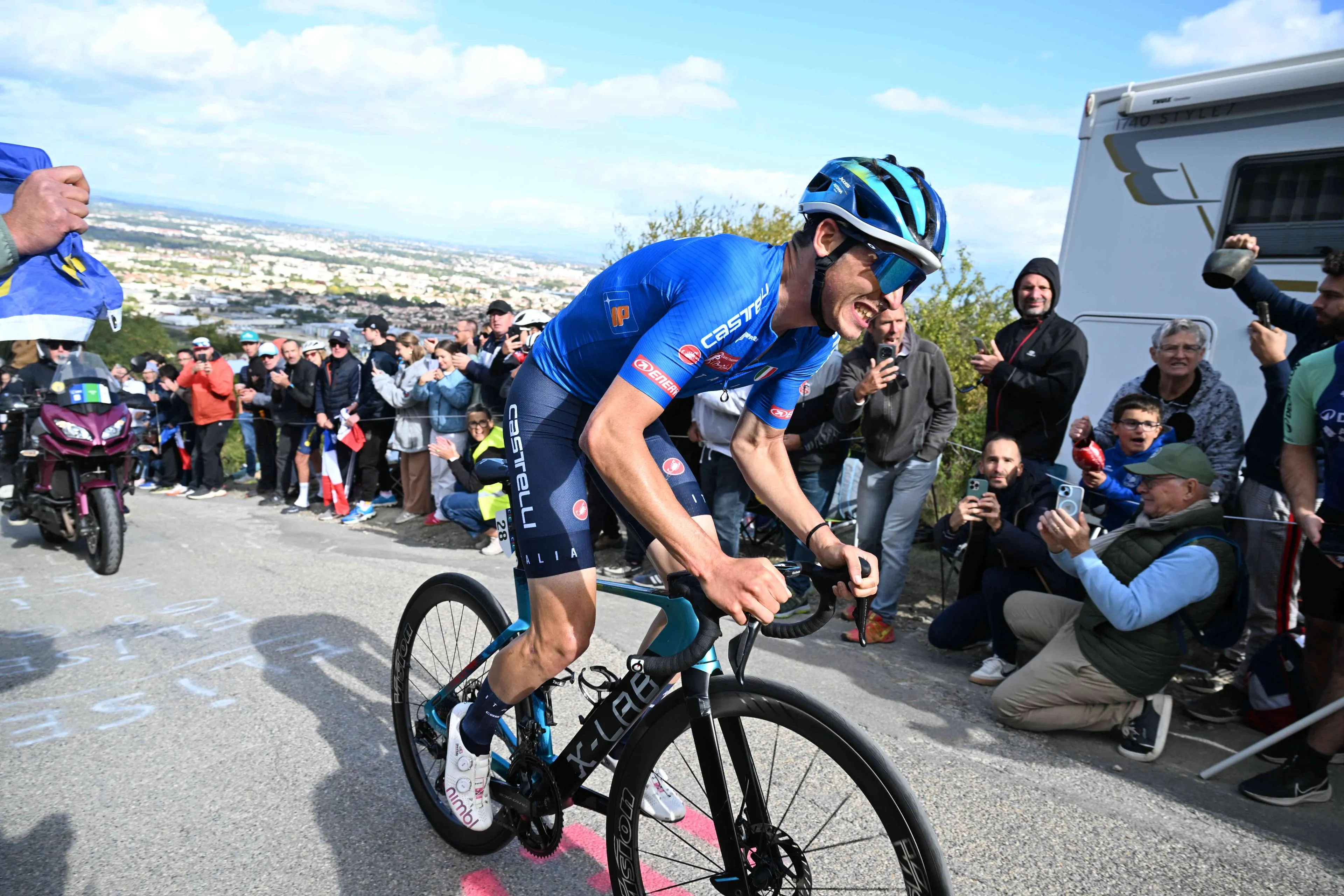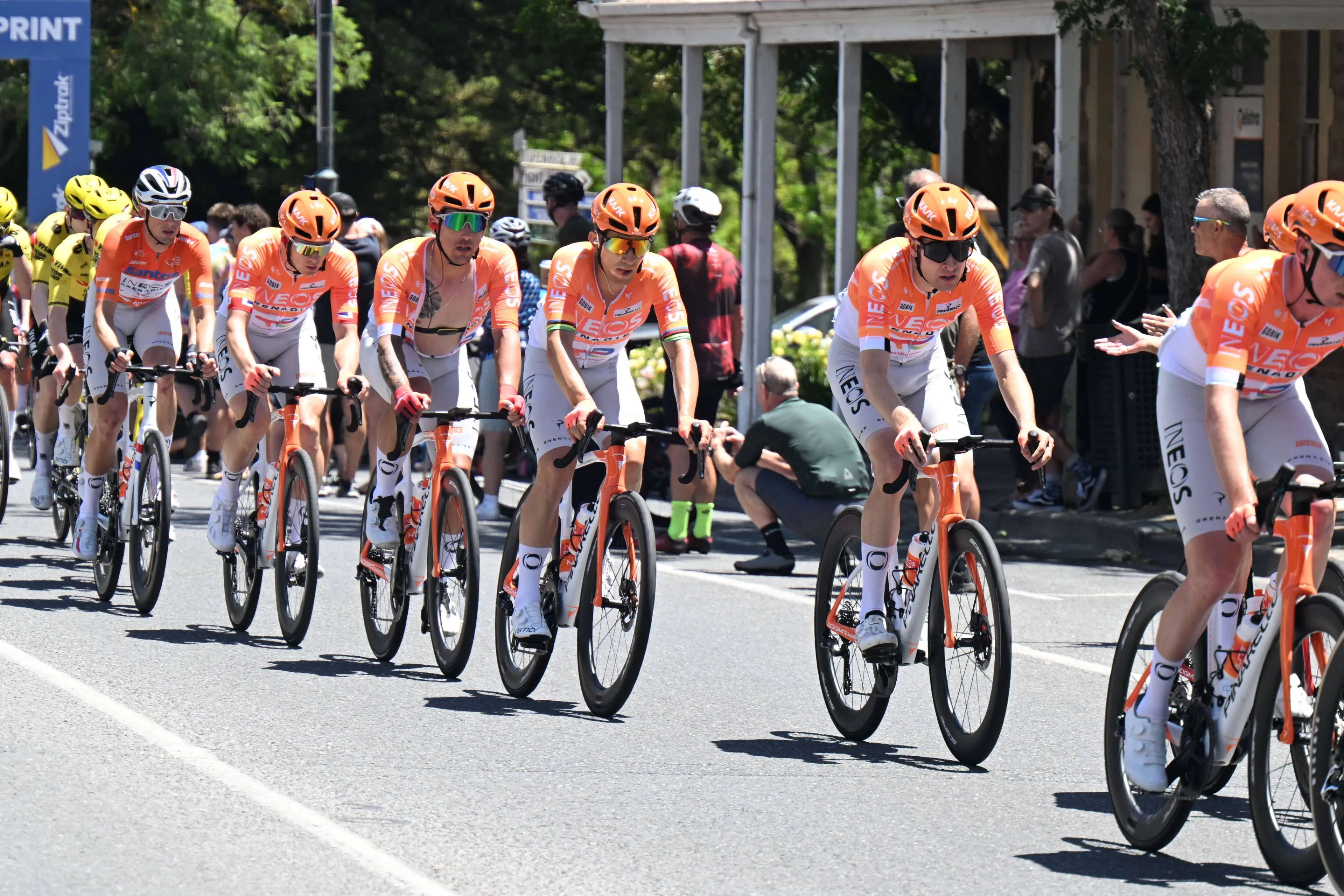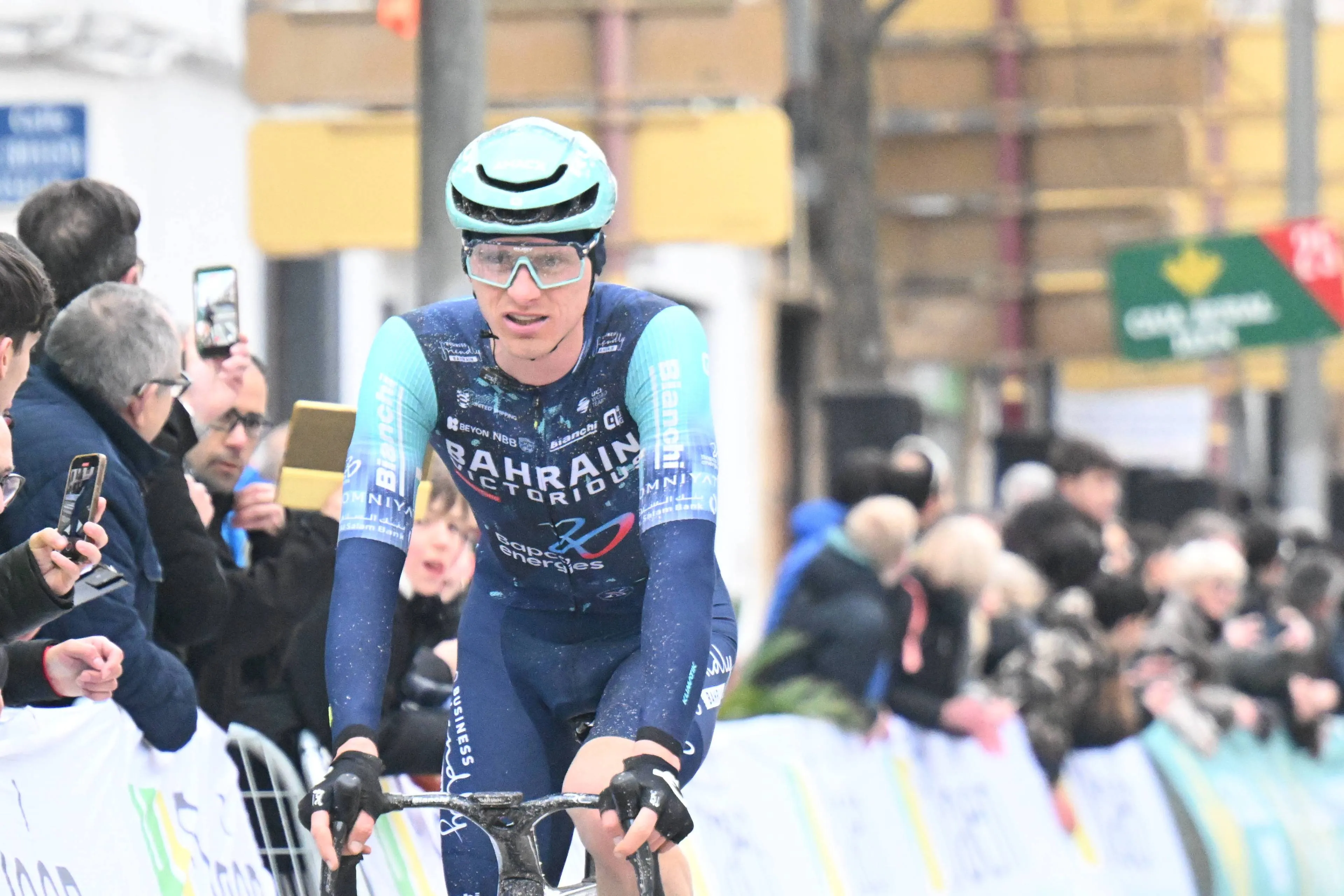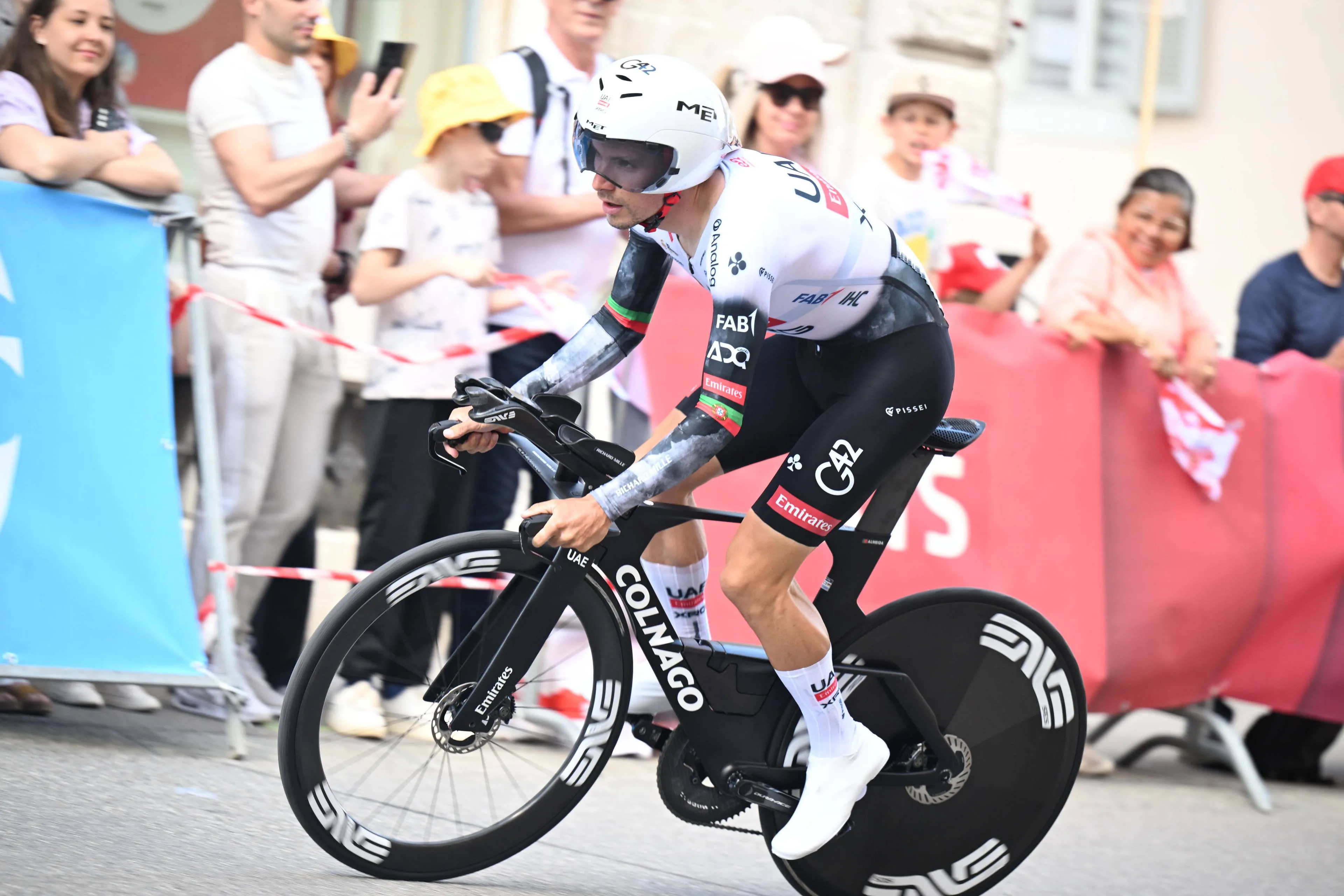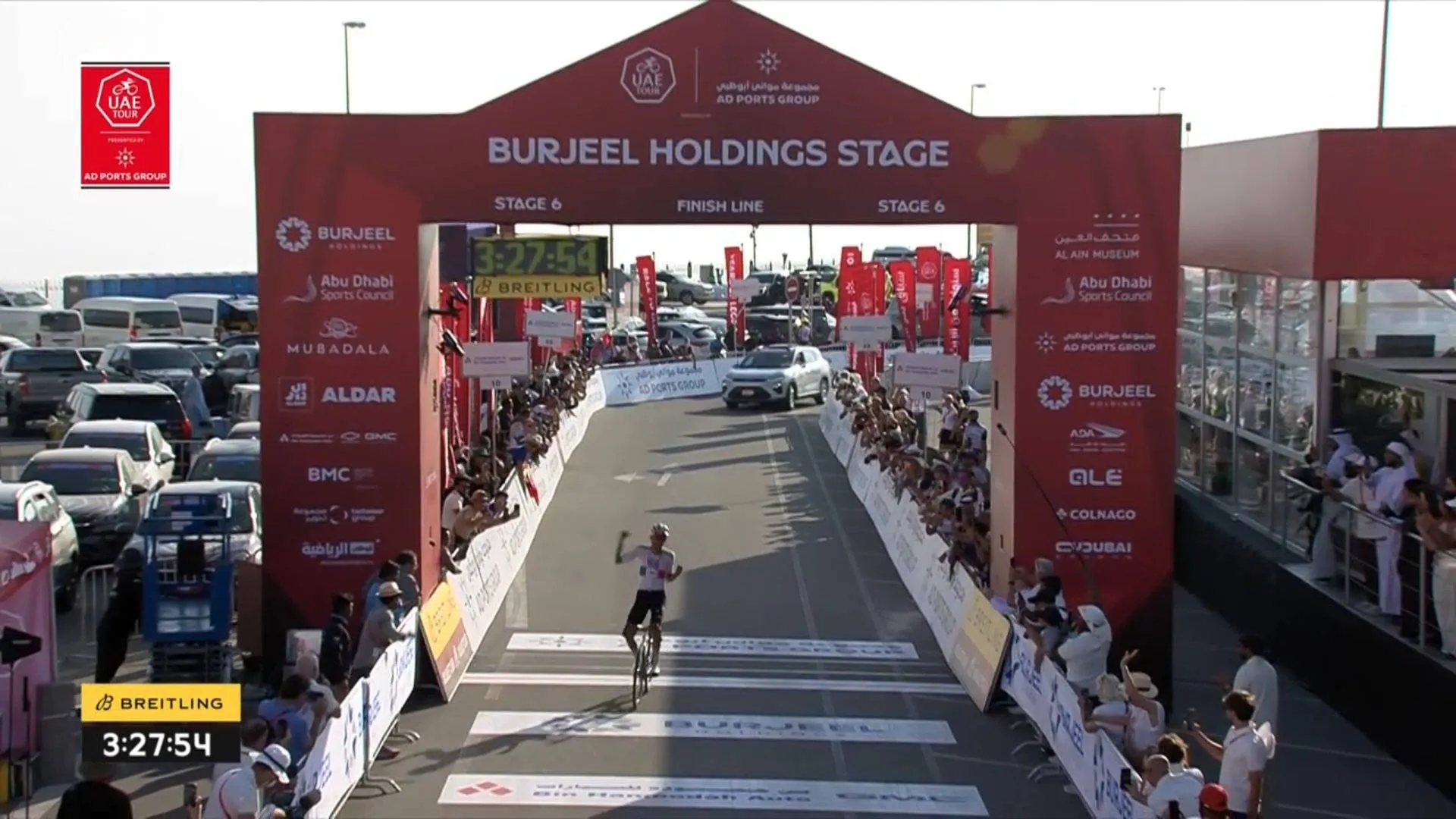"What's the solution? Stop flying?" - Giro director defends decision for long-distance travel on final day
CyclingSaturday, 22 October 2022 at 19:00

Giro d'Italia director Mauro Vegni has given his face to respond to the criticism that has been thrown against the race due to the long transfer in the final day into Rome. The decision has caused a stir amidst protest related to climate change in cycling.
"I don't think one charter flight from the north of Italy to Rome is any worse than the thousands of scheduled flights that are taken every day. What's the solution? Stop flying?" Vegni told Cyclingnews. "I think that's a sterile polemic. There are lots of ways to respect and help the environment, it's not only about one flight less or one flight more. We need to look at the whole footprint of the sport, sit down together and decide what we can do about it."
Read also
In recent years both Giro and the Tour de France have been the target of protests by climate-change activists. Cycling, with it's extensive convoy, and frequent long trips and flights, carries a weight in the carbon footprint. Although measures are being done to limit it, many have not taken the 700-kilometer flight from (near) Monte Lussari to Rome on the final day of the 2023 route, instead of the initial plan to end the race in nearby Trieste.
"Apart from the final transfer to Rome, we've reduced the transfer to the bare minimum. We're also working on our recycling and have done a lot to help the environment. We can always do more but I think we're doing a lot," Vegni responded.
Read also
However, talking positive sides, Vegni has commented on the feedback and presence he expects in the race. "I think Remco could ride next year's Giro but I've got to admit that I'm a bit bored with all the talk about who will and who won't ride the Giro. That's not what cycling is about," he admits however.
"Riders come and go, great races like the Giro d'Italia, the Tour and the Vuelta remain. It's the races that make the riders famous, not the other way around. If this year's Tour de France winner Jonas Vingegaard hadn't won the Tour, nobody would be speaking about him as they are now. So whoever rides and wins the Giro is a great rider," Vengi commented.
Read also
A brutal race, marked by almost 70 kilometers of time-trial and several high-mountain stages, four of them alone in the final week, he's added: "Nothing against the other races but the Giro is widely considered the hardest Grand Tour of all," he said.
"Other races might have more pressure, more visibility and raise more expectations but the Giro is second to know when it comes to the beauty and the difficulty of the route. The Giro is a combination of two things: it's a great race but also shows off the beauty of Italy, its culture and lifestyle. Cycling combines sport and culture in a unique way," he concluded.
claps 0visitors 0
Just in
Popular news
Latest comments
- Gilbert: "I would be more concerned if Evenepoel had won that monster climb by five minutes. It shows Remco is not peaking too early.” Really Gilbert??? Now you're making excuses in Remco's name? Please explain to me why Tadej Pogacar-Pogi is at his peak all year round? He usually wins his first race Strade Bianche and his last race Lombardy...and a bunch of races in between... like different Monuments and stage races and WC. Gilbert, you're making a fool of yourself... you,d be better off being quiet.Mou-Cro-HR22-02-2026
- an episode of acute climbitis, maybe?.
 maria2024202422-02-2026
maria2024202422-02-2026 - Common Gilbert, stop the BS... Remco is the king of excuses. Just think back a year or two... everyone was mocking him, even his own cousin. Where was his peak last year at the WC...at the EC...at Lombardija...at the Tour de France? He was actually in form because his TT's were great, and he was strong, but what happened on the climbs? NOTHING!!! And what will happen this year? NOTHING!!! Is that why the foolish bosses at Red Bull spent all that money...for a good TT cyclist and nothing else? Don't insult my intelligence.Mou-Cro-HR22-02-2026
- Common mij, stop the BS... Remco is the king of excuses. Just think back a year or two... everyone was mocking him, even his own cousin.Mou-Cro-HR22-02-2026
- I have a message for the French and Mexicans. In the next 10 years, you will experience the most beautiful era in the history of your countries in terms of cycling.... Sexais and Del Toro. The Spaniards will also recover from damages caused by Mas, Rodriguez and Landa. PS: The Belgians can switch to bobsleigh or curling as a national sport. Remco can change to skeleton... he's very aerodynamic.🤣🤣🤣Mou-Cro-HR22-02-2026
- After long a research I finally found out the reason for Remco's terrible performance in the Emirates. Roglic and Lipowitz are to blame because they didn't want to help in this race, but looked after their own asses which is unacceptable for Remco... the GOAT of excuses.Mou-Cro-HR22-02-2026
- I can't understand Remco. For a supposed Tour contender, his climbing is beyond bad. He couldn't keep up with a bunch of guys I've never heard of. He's either sand bagging or he just can't climb steep gradients. He's climbed well in the past, it doesn't make sense to me. I think he's foxing..he's not as bad as he's shown at this race. I'm not a Remco fan or hater but can see he really wants to be the best. Maybe he's confusing confidence with competence.Santiago22-02-2026
- Too much time spent on TT optimisation, but not climbing is my suspicion.
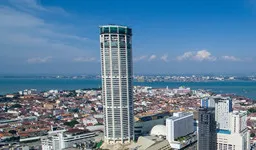 KerisVroom22-02-2026
KerisVroom22-02-2026 - you’re paying a rider multi millions, you find money to pay someone to escort him. not for the entire team, but how much money did Ineos lose by not having a top tier Egan? the lost revenue from losing your top rider more than offsets the $100 or so it would take per ride.mij22-02-2026
- he was a bit ill, but it’s not an excuse. then why say it???mij22-02-2026
Loading
Take a deep breath. 🗺 Here is the Route of the Giro d’Italia 2023. . Fai un respiro profondo. 🗺 Ecco il Percorso del Giro d’Italia 2023. #Giro @ENIT_italia
Write a comment
